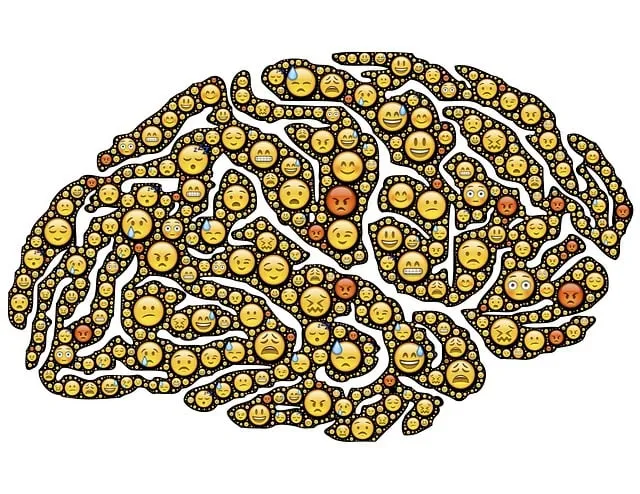The Broomfield Kaiser Permanente mental health center, under its owner's leadership, employs a unique approach combining RFM (Recollection, Feeling, Meaning) strategies and Resilience Building Exercises (RBE) for holistic mental wellness coaching. This method, integrated with Mental Health Awareness initiatives, equips individuals with resilience and positive coping strategies to confront life's challenges in today's fast-paced world. The center tailors programs to address specific stressors, incorporating evidence-based practices like mindfulness meditation and crisis intervention, while continuously improving based on client feedback and outcome assessments. Its focus on depression prevention, trauma support, and cultural sensitivity fosters a supportive environment for emotional regulation and inner strength development.
The integration of Resilient Factor Model (RFM) into mental health programs has emerged as a powerful strategy, exemplified by the innovative approaches of the Broomfield Kaiser Permanente Mental Health Center. This article delves into the transformative potential of RFM, exploring its impact on mental well-being. We examine the center’s unique implementation strategies, from designing targeted resilience-building exercises to providing a step-by-step guide for effective integration. Learn from their success story as we uncover key metrics for measuring progress and fostering continuous improvement.
- Understanding RFM and Its Impact on Mental Health Programs
- The Broomfield Kaiser Permanente Mental Health Center's Approach
- Designing Resilience-Building Exercises for Optimal Effectiveness
- Implementing RFM Strategies: Step-by-Step Guide
- Measuring Success and Continuous Improvement at the Center
Understanding RFM and Its Impact on Mental Health Programs

At the Broomfield Kaiser Permanente mental health center by owner, we recognize that Understanding RFM—Recollection, Feeling, and Meaning—is a game-changer in shaping effective mental wellness coaching programs. This framework delves into individuals’ past experiences, emotions, and personal interpretations, providing a holistic view of their mental health journey. By integrating RFM into our development strategies, we can create tailored interventions that foster resilience and promote positive thinking.
The impact of RFM is profound in building resilience, particularly when coupled with Mental Health Awareness initiatives. It helps individuals re-evaluate past traumatic events, manage intense feelings, and derive meaning from their experiences, ultimately enhancing their ability to cope with life’s challenges. Our mental health center aims to empower folks through these exercises, ensuring they not only survive but thrive in a bustling world demanding constant adaptation and resilience.
The Broomfield Kaiser Permanente Mental Health Center's Approach

The Broomfield Kaiser Permanente Mental Health Center stands as a beacon of hope and resilience within its community. Recognizing the interconnectedness between physical and mental well-being, the center employs a holistic approach to address the complex needs of its diverse clientele. By integrating innovative practices alongside traditional therapies, they foster an environment that nurtures both the mind and body.
One of their unique strategies involves tailored Resilience Building Exercises (RBE) designed by the center’s own expert team. These exercises focus on empowering individuals to confront and overcome challenges, fostering inner strength development and trauma support services. By engaging in activities that promote self-awareness and emotional regulation, patients are equipped with invaluable tools for depression prevention and overall mental resilience. This comprehensive approach ensures that individuals leave the center not only stabilized but also empowered to navigate life’s hurdles with renewed confidence.
Designing Resilience-Building Exercises for Optimal Effectiveness

When designing resilience-building exercises at the Broomfield Kaiser Permanente mental health center by its owner, it’s crucial to tailor activities that resonate with participants while addressing their unique challenges. Effective exercises should promote social skills training, stress management, and foster mind over matter principles—all core components of fostering mental fortitude. Incorporating interactive workshops, group discussions, and practical mindfulness techniques can significantly enhance these sessions’ impact.
For optimal effectiveness, these exercises should be regularly reviewed and adapted to meet the evolving needs of participants. Engaging facilitators who are adept at creating a safe and supportive environment is essential. By combining evidence-based practices with creative approaches, such as role-playing scenarios and creative arts, resilience-building initiatives at Broomfield Kaiser Permanente can empower individuals to navigate life’s challenges with enhanced coping strategies and improved overall well-being.
Implementing RFM Strategies: Step-by-Step Guide

Implementing RFM (Resilience, Flexibility, and Mastery) Strategies at Broomfield Kaiser Permanente mental health center by owner involves a structured approach that fosters resilience in individuals. Start by identifying specific areas where stress or adversity are prevalent among clients. This could be related to their personal lives, work environments, or health conditions. Next, design tailored RFM programs based on these insights, incorporating evidence-based Mental Health Education Programs. These programs should focus on building coping mechanisms and enhancing problem-solving skills to navigate challenging situations effectively.
For instance, stress reduction methods like mindfulness meditation, deep breathing exercises, and progressive muscle relaxation can be integrated into the sessions. Additionally, Crisis Intervention Guidance can equip clients with strategies to manage acute stressors and prevent escalation. Regularly assess the program’s effectiveness through client feedback and outcome measures, making adjustments as needed to ensure optimal resilience building.
Measuring Success and Continuous Improvement at the Center

Measuring Success and Continuous Improvement are paramount when implementing RFM (Resilience, Fitness, and Mindfulness) exercises at Broomfield Kaiser Permanente mental health center by its owner. The primary metric for success lies in the observable improvement in patients’ mental well-being and reduction of symptoms associated with anxiety relief. Through regular assessment and feedback mechanisms, the center can gauge the effectiveness of each RFM program component, identifying areas that thrive and those needing adjustments.
Community outreach program implementation and Mental Illness Stigma Reduction Efforts play a significant role in this process. By engaging with the broader community, the mental health center can gather insights into cultural perspectives on mental illness, which are crucial for tailoring programs to resonate with diverse populations. This holistic approach ensures that success is not just measured quantitatively but also qualitatively, fostering a sense of belonging and support among participants.
The implementation of RFM strategies, as demonstrated by the Broomfield Kaiser Permanente Mental Health Center, offers a powerful approach to enhancing resilience and improving mental health outcomes. By combining evidence-based exercises with a tailored, step-by-step guide, this model provides a practical framework for professionals aiming to create lasting change. The center’s success highlights the impact of designing interventions that resonate with individuals’ unique needs, ultimately fostering a sense of empowerment and well-being. This innovative method, inspired by the Broomfield Kaiser Permanente mental health center by owner, can serve as a blueprint for organizations seeking to revolutionize their mental health programs.






